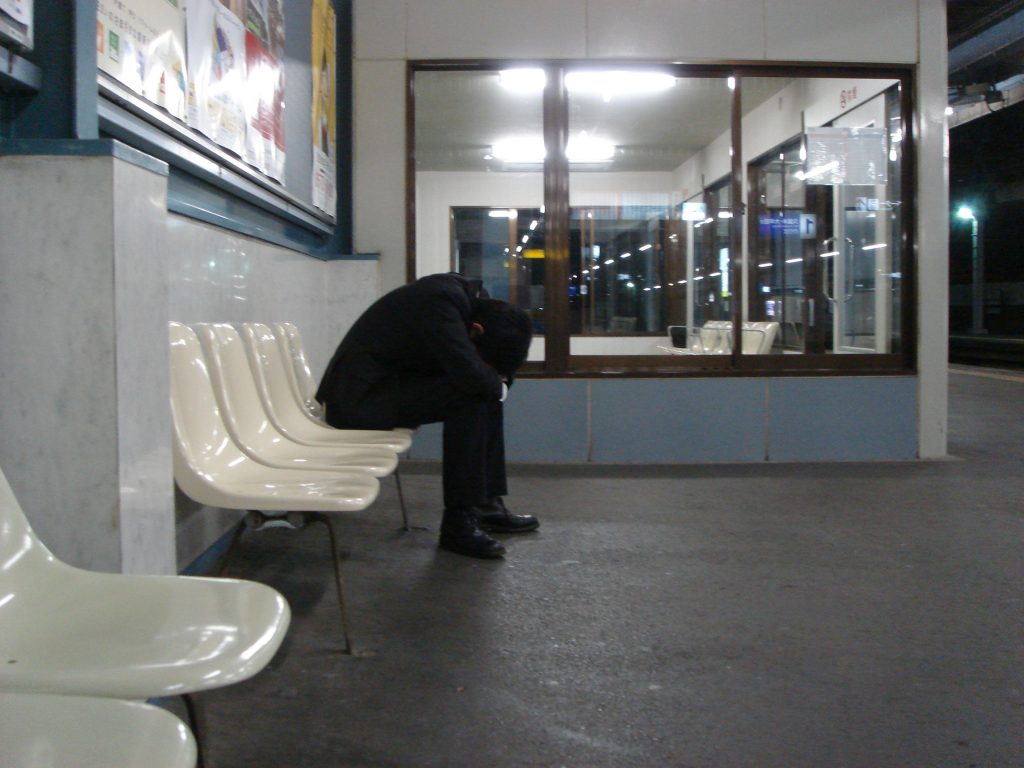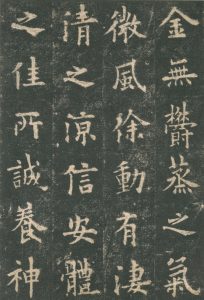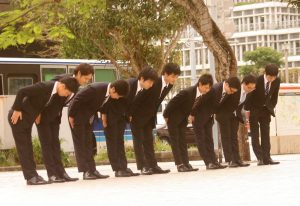(not) Taking vacation

I asked my boss for 2 weeks off a few years ago in order to go back to the UK for the summer holidays. A surprised look came over his face together with an exclamation along the lines of “two weeks, that is a long time”. The implication was clear – you could take two week off (no company rule against it) however it would be better to limit it to a single week if possible.
We settled for 10 days. No one else in the company has, I think ever, taken more than a single week of vacation in one block. It is just not the done thing. Most will make up a full week of vacation by adding on two or three days to a public holiday falling next to the weekend. A whole two weeks? Impossible.
Of course, Japanese workers do have long holidays. The vacations around New Year’s and the May “Golden Week” are the major ones. There is always a slight buzz in the office when one of the public holiday periods rounds up to a full 10-day streak (two weekends + the full 5 day week + an extra Monday or Friday from surrounding weeks). Japan has a lot of public holidays to be honest.
The mandatory week off
For certain companies, a mandatory week off in August is not uncommon. The entire company shuts down and everyone takes a week of paid vacation at the same time. Good for the company, but bad for the individual if they really don’t fancy a vacation at that precise moment. In Europe this is probably illegal, but in Japan perfectly acceptable.
Not using all your vacation time
Sick pay is not a thing in Japan. If you are sick, you take paid leave until you are well again (the current – as of July 2020 – COVID-19 crisis means the rules may be slightly different). There are long term benefits for those off sick with more than a cold, but they don’t cover anything less than 3 days or anything that doesn’t stop you from doing your job (broken leg? get some crutches).
For this reason, some workers will leave a portion of their paid leave to cover sick days, and then it will expire at the end of the two year period of validity. Of course, some just don’t use it because they forget or are too busy. Depending on the company, this “remaining” sick leave may be put in a pool to be used for emergencies that are not covered by explicit company rules or Japanese labor laws. However, there is no law requiring this so it may just be a case of “use it or lose it”. I was told this “stock” vacation should only be used if you are long-term sick, although that is covered by Japanese law, so not sure by boss even knows that?
Overtime and overwork
Overtime is often mistranslated into “overwork”, which is a good phrase for the Japanese attitude to unpaid overtime. It is not unusual to see colleagues still in the office until past 9pm every day. It used to be worse, but Japanese law changed recently to limit the monthly burden to 80 hours (4 hours a day). Japanese HR is as pushy as in any other country – once there is a law to stick to. Karoshi (death by overwork) is still a problem although a lot less so compared to a few decades ago.
Go slow then go fast?
I often wonder exactly how the number of “hours worked” can be justified. Some specific jobs will have their own, specific reasons (e.g. engineers at customer’s sites fixing machines). Exempting those sorts of jobs, I have heard a few excuses over the years that boil down to two things: –
- We can’t go home while others are still working hard
- I genuinely have a lot of work on (and by regular hours are not that productive for various reasons)
The others are working hard extends to “not going home until the boss has left”. An ex-student of mine once remarked how he could never go home until his boss left, regardless of how little work he had. He would lament the boss staying late as it meant he couldn’t leave. It is such a part of office culture that most senior managers will leave on time just so that everyone else can “clock off”. Only the “part-time” workers will ever leave at the scheduled end of the work day. Most full-time workers will do at the very least an extra 20 minutes “for show”.
The other aspect of work life is just how unproductive the Japanese work day can be. Full of meetings and discussions, distractions and phone calls, a knowledge worker who needs to get lost in a few spreadsheets finds the evening their most productive. Of course, you can’t come in late in order to work late. FLEXible working is a normal part of a working contract, but “flex” means “extend the hours into the evening” – you still have to get to work before 9am.

